Are you feeling overwhelmed by debt interest piling up? Writing a debt interest waiver request letter can be your first step toward relief. In this article, we'll guide you through crafting a compelling letter that clearly outlines your situation and makes a strong case for a waiver. Let's dive in and help you take control of your financial future!

Personal information and account details
In 2023, individuals seeking relief from accruing debt interest must present compelling personal situations. Substantial details such as full name, residential address, phone number, email address, and account number are essential for proper identification. Financial institutions, like banks or credit unions, require precise account information to process requests effectively. Specific circumstances, such as job loss affecting income or medical emergencies incurring unexpected expenses, often warrant consideration for waivers. Additional documentation may include bank statements or proof of income to substantiate claims and strengthen the request.
Clear and concise subject line
A debt interest waiver request aims to alleviate financial burdens on individuals or organizations struggling to meet obligations, typically addressed to creditors or financial institutions. Maintaining a clear and concise subject line is crucial in capturing attention and ensuring that the purpose of the request is immediately understood. For instance, a subject line like "Request for Waiver on Accrued Interest - Account #123456" specifies the intent and identifies the account, facilitating focused attention from the recipient's side. This practice enhances communication efficiency and aids in expediting the review process.
Explanation of financial hardship
Financial hardships can severely impact an individual's ability to meet debt obligations. Variables such as unemployment rates, personal medical expenses, or unexpected emergencies can catalyze these challenges. For example, a sudden job loss (with rates reaching 14.7% in April 2020 due to COVID-19) may drastically reduce income, making it difficult to pay monthly interest on loans, such as credit card debt averaging 16% interest rates. Additionally, medical bills can accumulate rapidly, with average hospital stays costing upwards of $10,000, imposing additional pressure on finances. Situations like these necessitate a request for debt interest waivers, allowing individuals to regain financial stability without the burden of crippling debt payments.
Request for interest waiver with justification
Submitting a formal request for an interest waiver is crucial when managing financial obligations. To effectively communicate this request, it is essential to provide a clear justification, such as financial hardship or unexpected circumstances. A concise statement should detail specific events, such as job loss or medical emergencies, that have impacted the ability to meet debt obligations. Including relevant financial figures, such as monthly income, essential expenses, and remaining debt balance, offers a comprehensive view of the situation. Clearly address the entity holding the debt, and ensure to follow established channels or protocols for such requests to increase the likelihood of a favorable response.
Polite closing and contact information
When submitting a request for debt interest waiver, ensure to include your personal information, such as full name, address, and phone number for effective communication. In the closing, express gratitude for their time and consideration, and convey your hope for a positive response. Additionally, mention your willingness to provide further information or documentation to support your request. A polite closing remark may include phrases like "Thank you for your attention to this matter" or "I look forward to your favorable reply.

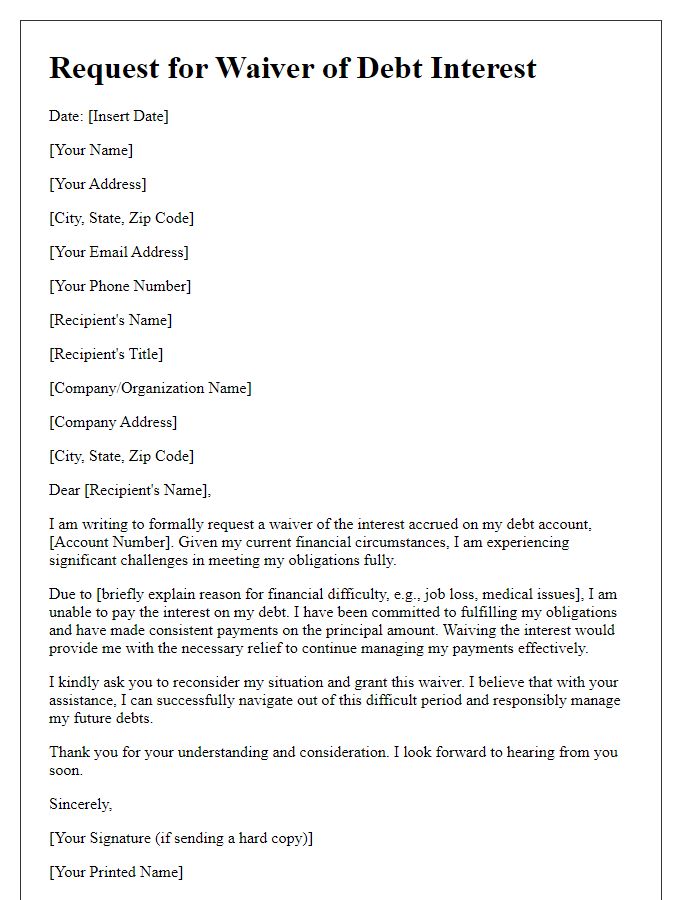
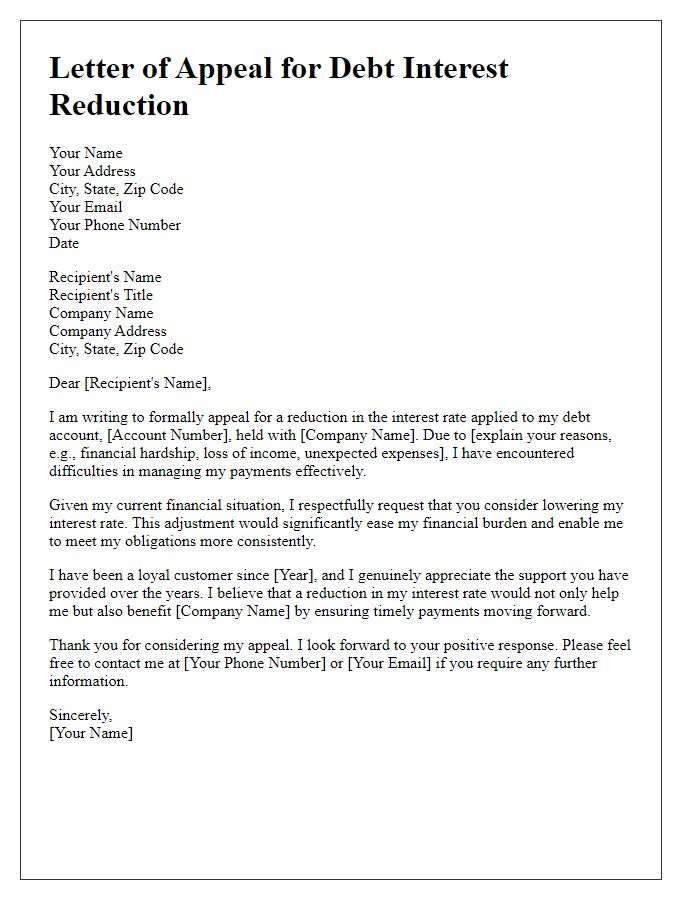
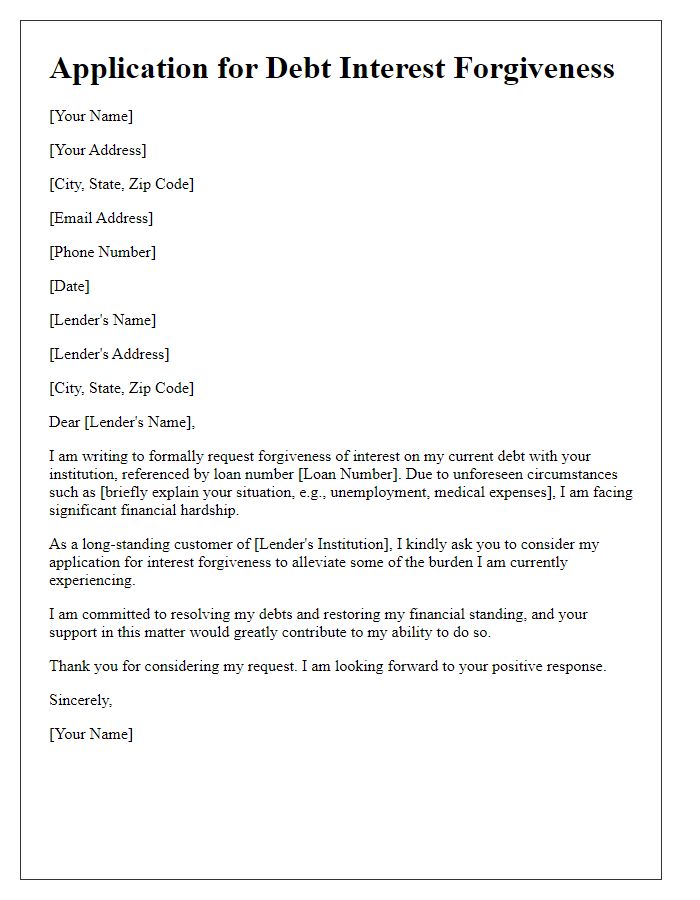
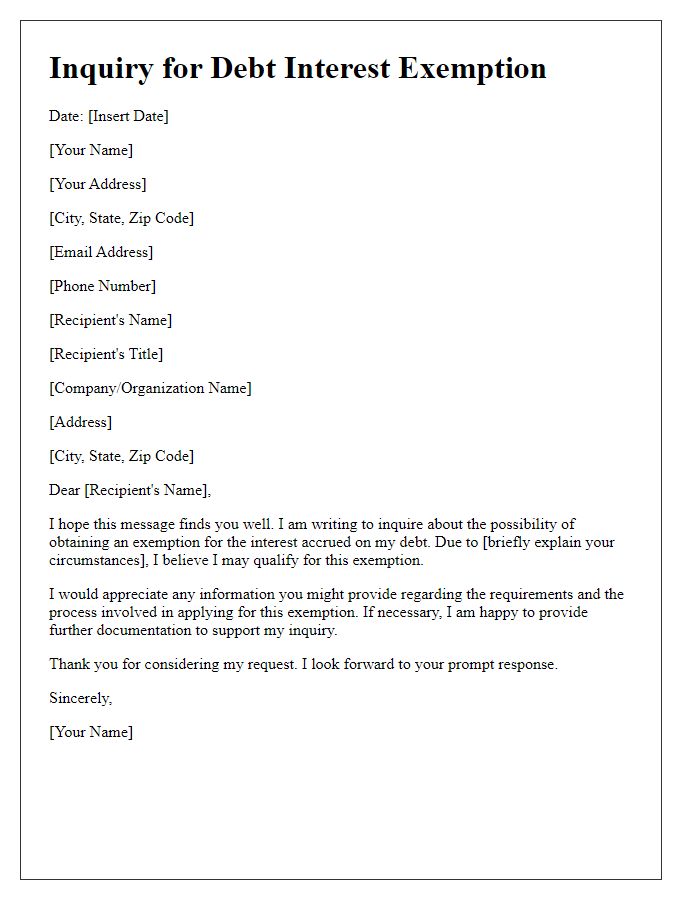
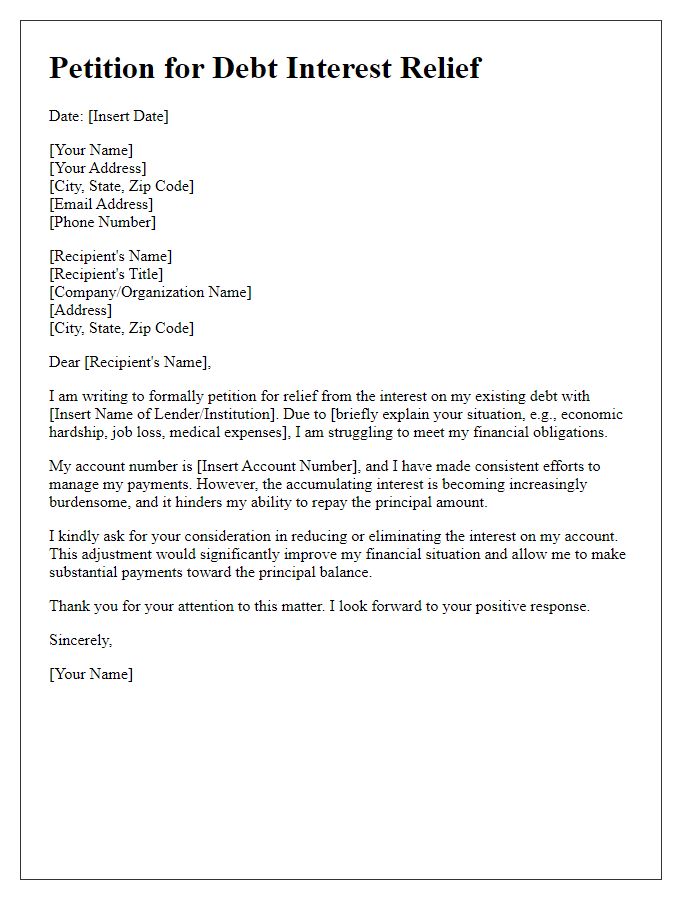
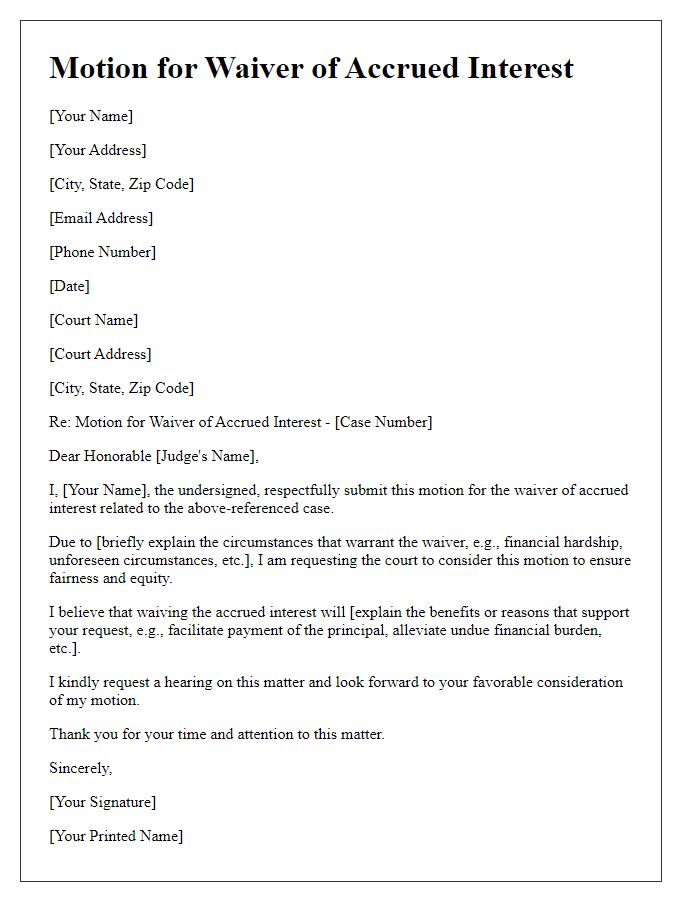
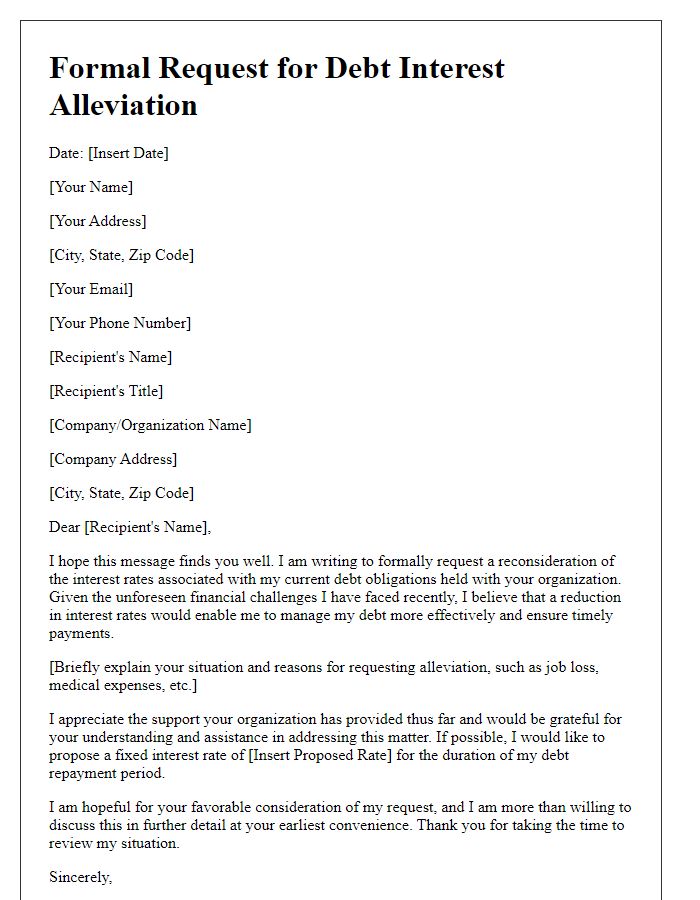
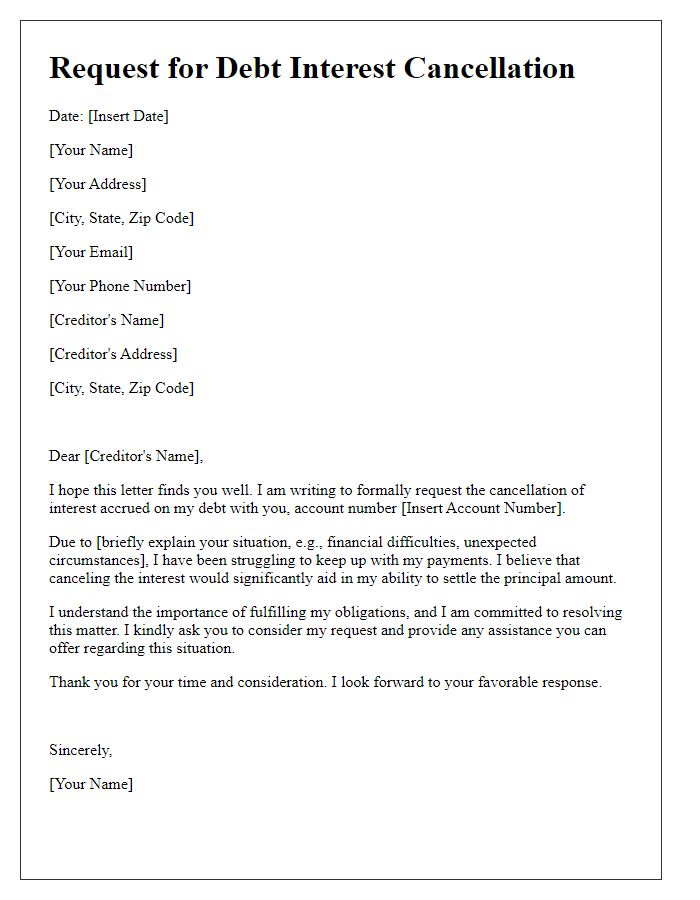
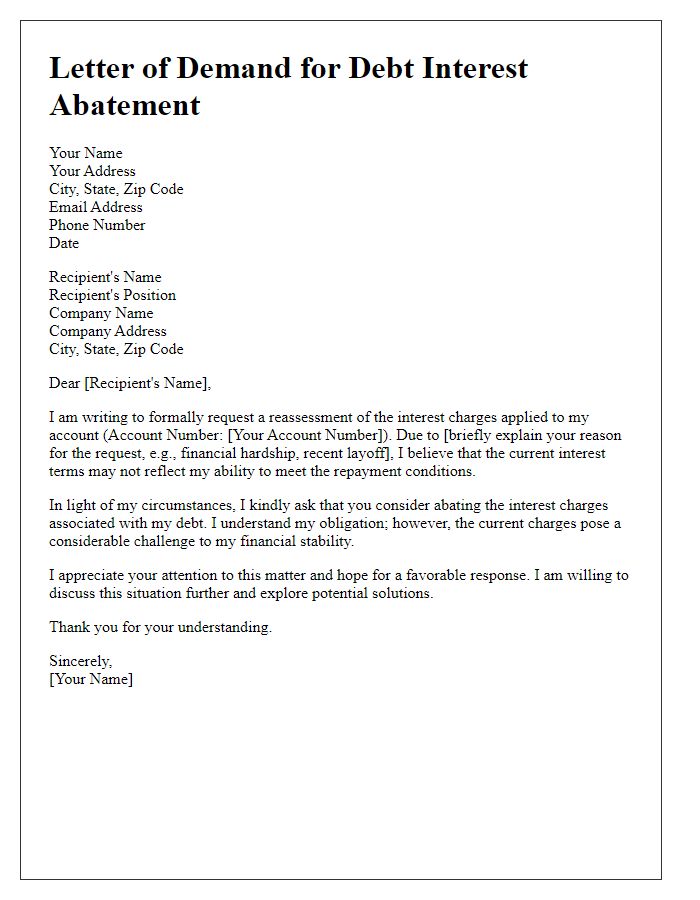
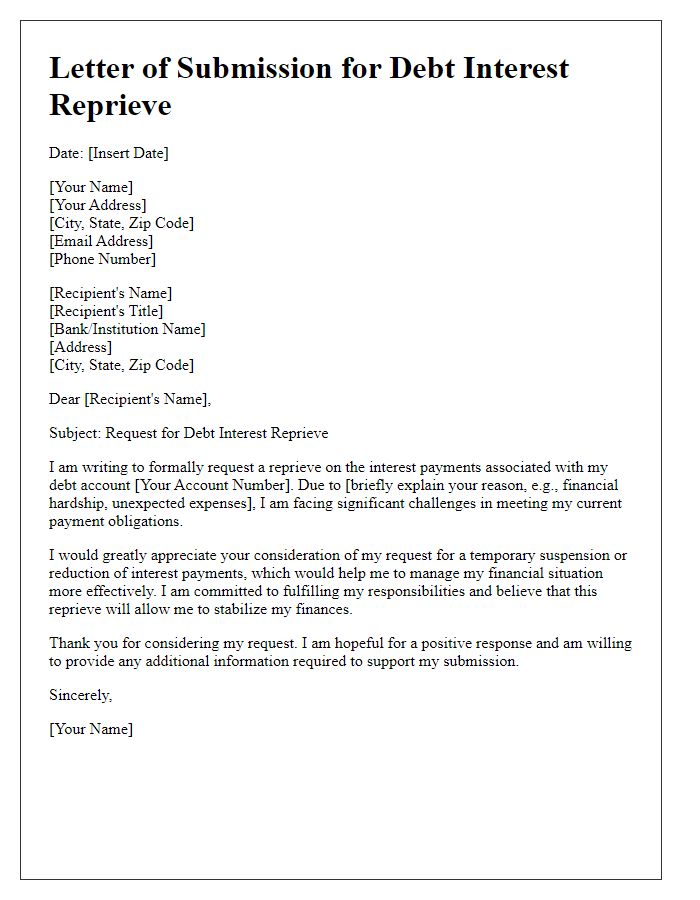


Comments